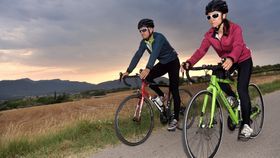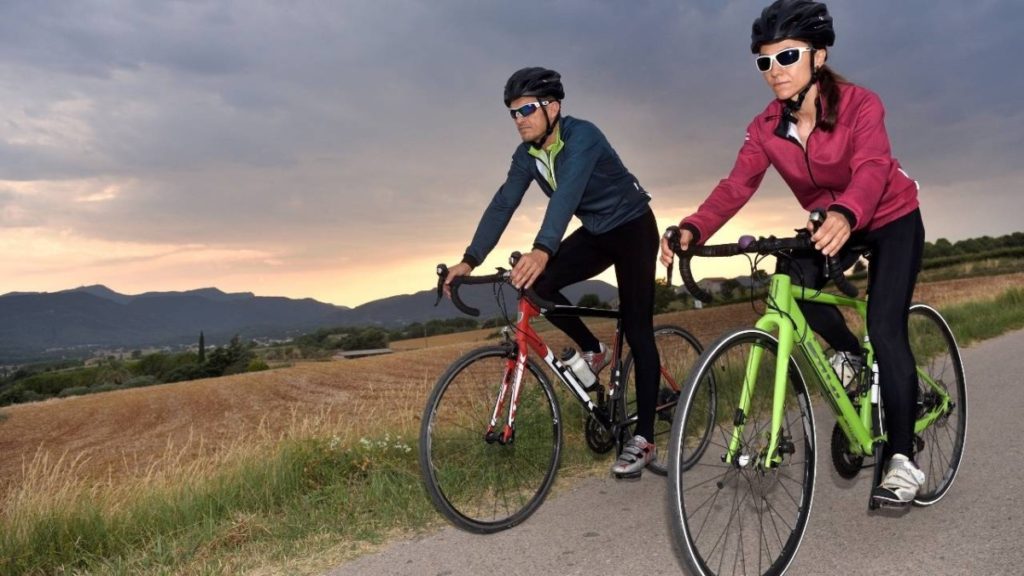
Understanding how long it takes to cycle 1km is essential to calculate large distances on your bike. 1km can be a fast sprint for some if they are looking to achieve a speedy 1km time. However, if you want to use your 1km time as an estimate for a long distance, then I suggest riding at your normal cycling pace and not going too hard.
If you achieve a very fast 1km time and you can’t hold that pace for 5,10, or 15km, then it’s pointless using your 1km time as an estimate for these distances. Instead, you can look at the average times for 1km by gender and age. These times a calculated using the average pace for most beginner/intermediate riders which are between 16kph and 25kph.
Table of Contents
What is the Average Time to Cycle 1km
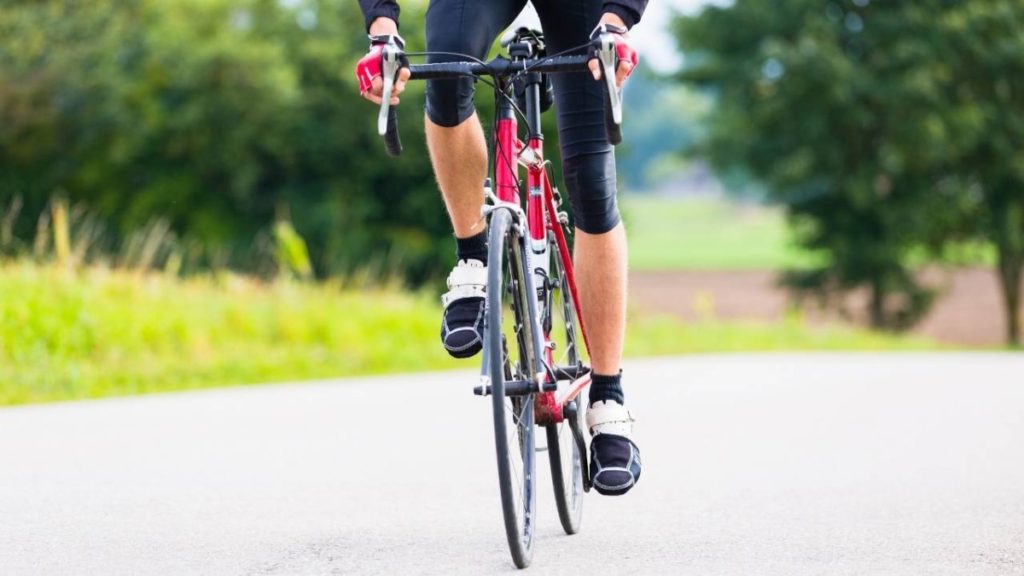
A person with an average level of fitness can cycle 1km between 2 minutes 50 seconds and 3 minutes 46 seconds. The average time for a male aged 20-40 is around 2 minutes 46 seconds. For a female, it is 3 minutes. For an advanced cyclist, an average 1km time is around 1 minutes 80 seconds.
The average time it takes to cycle 1km varies widely depending on age, gender and fitness levels. However, the general trend is that men are faster than women and younger people are faster than older people. Men tend to have more explosive muscle fibres making them faster than females over short distances like 1km. However, females can effortlessly make this time up over a longer distance as they tend to have better endurance.
Similarly, the type of bike you use can massively impact your time. A road bike is far quicker than a mountain bike, and you can travel around 10% faster or more. If you are using a racing bike, then your time can be even quicker. These average times have been taken by people using a road bike or hybrid. If you have a standard mountain bike, then add around 10% to these times.
Finally, the type of terrain you are cycling on will also make a difference. If you are on hilly terrain, then your times will be slower than if you are on flat landscapes like a road or highway. Mountain bikes over the rocky ground will be 50% slower than a road bikes on a smooth highway surface. Therefore, which every bike you use, there will be a different average time.

Average Time to Cycle 1km Males
On average, it takes a male between 2 minutes 40 seconds and 2 minutes 91 seconds to cycle 1km. However, it depends on their age, weight and overall fitness levels. For instance, a male that is aged between 25-29 can expect a 1km cycling time of 2 minutes 42 seconds. For a male that is aged 40-44 can expect around 2 minutes 50 seconds.
| AVERAGE TIME TO CYCLE 1 km | |||
| AGE | Beginner Level | Intermediate Level | Advanced Level |
| 15-20 | 00:02:00 | 00:01:48 | 00:01:37 |
| 20-25 | 00:02:02 | 00:01:47 | 00:01:36 |
| 25-30 | 00:02:00 | 00:01:45 | 00:01:35 |
| 30-35 | 00:02:05 | 00:01:51 | 00:01:39 |
| 35-40 | 00:02:07 | 00:01:55 | 00:01:41 |
| 40-45 | 00:02:08 | 00:01:57 | 00:01:42 |
| 45-50 | 00:02:13 | 00:01:59 | 00:01:45 |
| 50-55 | 00:02:18 | 00:02:01 | 00:01:50 |
| 55-60 | 00:02:24 | 00:02:07 | 00:01:54 |
| 60-65 | 00:02:30 | 00:02:11 | 00:01:59 |
| 65-70 | 00:02:36 | 00:02:17 | 00:02:04 |
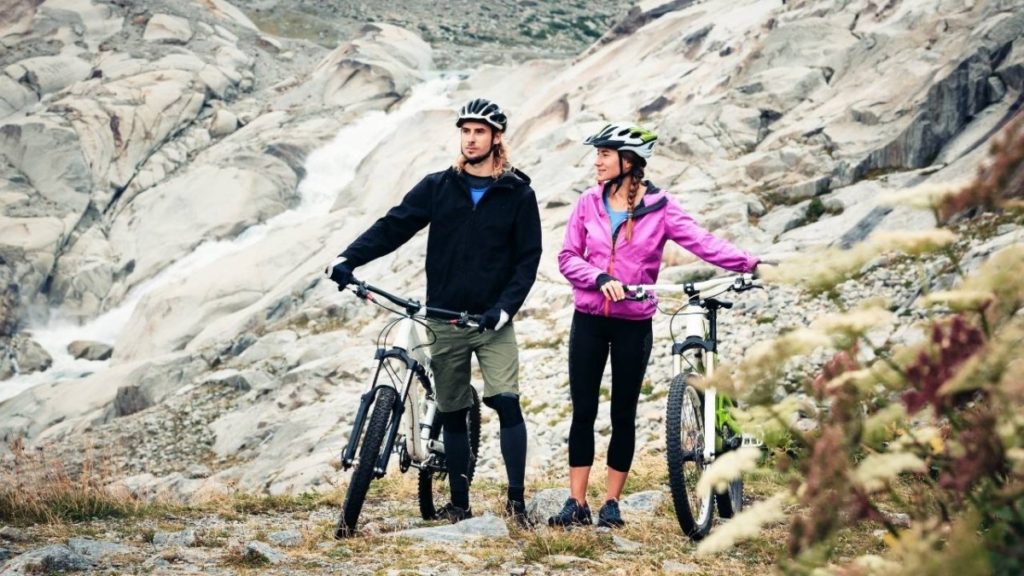
Average Time to Cycle 1km Females
On average, it takes a female between 2 minutes 91 seconds and 3 minutes 46 seconds to cycle 1km. However, it depends on their age, weight and overall fitness levels. For instance, a female that is aged between 30-34 can expect a 1km cycle time of 2 minutes 94 seconds. For a female that is aged 45-50 can expect around 3 minutes 11 seconds.
| AVERAGE TIME TO CYCLE 1 km | |||
| AGE | Beginner Level | Intermediate Level | Advanced Level |
| 15-20 | 00:02:32 | 00:02:11 | 00:01:57 |
| 20-25 | 00:02:31 | 00:02:10 | 00:01:56 |
| 25-30 | 00:02:29 | 00:02:08 | 00:01:54 |
| 30-35 | 00:02:33 | 00:02:13 | 00:01:58 |
| 35-40 | 00:02:34 | 00:02:16 | 00:01:59 |
| 40-45 | 00:02:35 | 00:02:19 | 00:02:00 |
| 45-50 | 00:02:41 | 00:02:26 | 00:02:04 |
| 50-55 | 00:02:49 | 00:02:30 | 00:02:10 |
| 55-60 | 00:02:59 | 00:02:34 | 00:02:17 |
| 60-65 | 00:03:10 | 00:02:43 | 00:02:26 |
| 65-70 | 00:03:22 | 00:02:54 | 00:02:35 |
Other Cycling Articles you Might Find Helpful
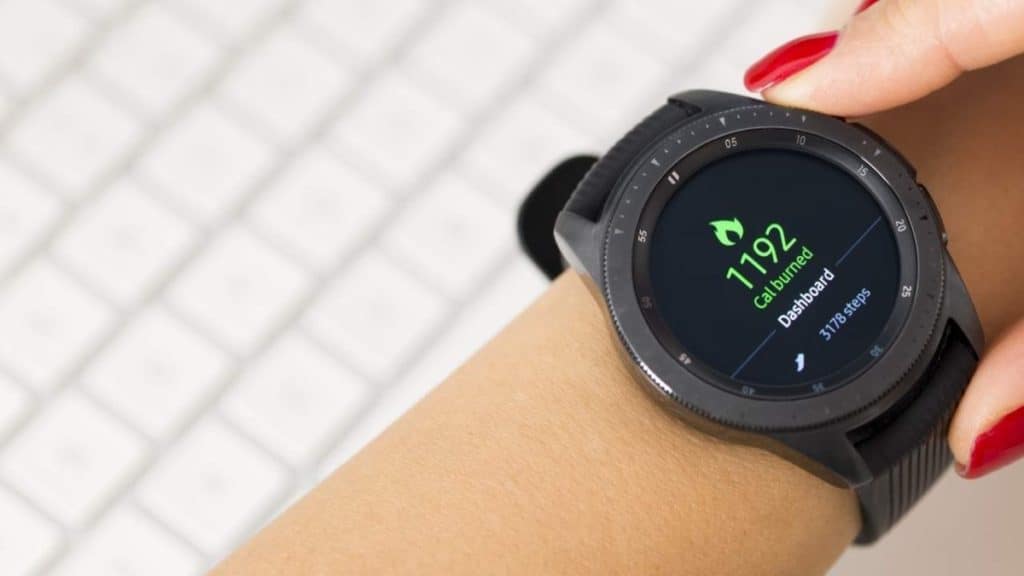
How Many Calories Do You Burn Cycling 1km?
On average, if you cycle 1km at a moderate pace at a speed of 19kph-30kph, you can expect to burn around 35 calories. The number of calories you burn cycling 1km will depend on your weight, gender and pace. A person who weighs 180 pounds and bikes 1km in 3 minutes will burn about 33 calories. A person who weighs 220 pounds and cycles 1km in 3 minutes will burn about 40 calories.
| Weight (pounds) | Calories Burned for cycling 1km |
| 160 | 29 |
| 170 | 31 |
| 180 | 33 |
| 190 | 34 |
| 200 | 36 |
| 210 | 38 |
| 220 | 40 |
| 230 | 42 |
| 240 | 45 |
| 250 | 48 |
The number of calories you burn while cycling 1km will depend on a few factors. First, your weight will play a role in how many calories you burn. Second, the speed at which you cycle will also determine how many calories you’ll use. And finally, the terrain or resistance level will also impact calorie burn. If they were to add resistance or cycle on hilly terrain, they could potentially burn even more calories.
Nevertheless, the amount of calories you burn cycling 1km isn’t enough to notice significant weight loss or fitness gains because the distance is too short of making a noticeable difference. However, you can use the number of calories burned as a good estimate for longer distances like 5km or 10km. It gives you an estimate of how many calories you can burn and if weight loss is achievable.
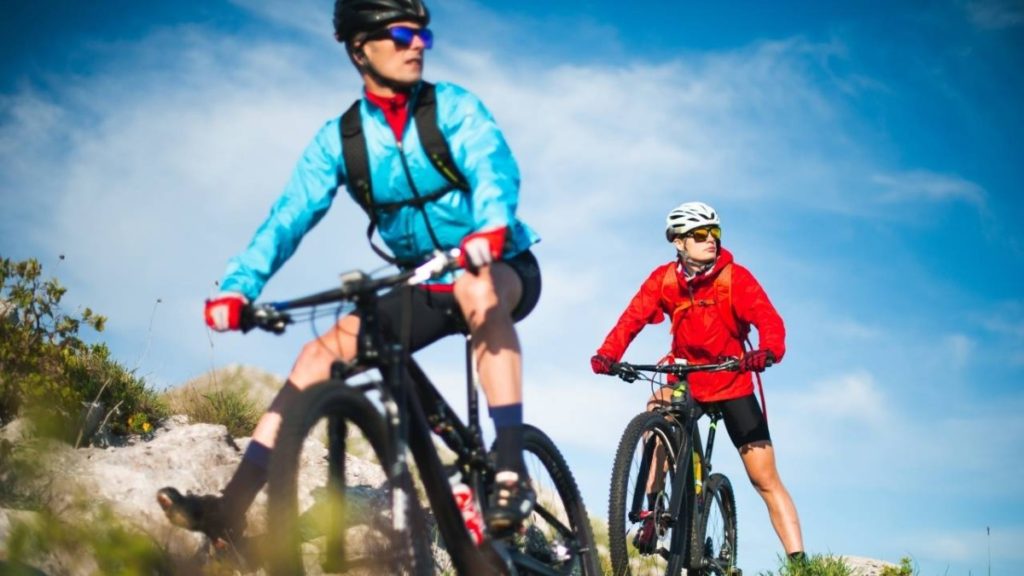
Tips to Improve Speed and Distance
1. Make sure your bike is the right size for you and is fitted correctly.
This will help you to be more comfortable on the bike and be able to pedal more efficiently. Smooth pedalling and being able to apply power evenly to the pedals is key to going fast.
2. Start off slowly and build up your pace as you get warmed up.
This will help you to ride further before getting tired. You should be able to talk in full sentences when riding at a conversational pace. After 2 or 3km your body will be nice a warm and you can increase the pace.
3. Use a higher gear when cycling uphill and a lower gear when going downhill.
This will make pedalling easier and help you to maintain a good speed. Understanding how your gears work is essential for any cyclist because it can make a huge impact on your energy output and speed.
4. When going around corners, slow down before the turn and then pedal hard to exit the turn.
This will help you to maintain your speed and prevent you from skidding. The majority of accidents on bikes happen on corners and going down hills to fast. Take your time and slow down.
5. Always wear a helmet when cycling.
This will help to protect you in case of an accident especially off road or on the road. In some countries and state its against the law to ride without a helmet if your cycling on the road so always check before you set off on your bike ride.
